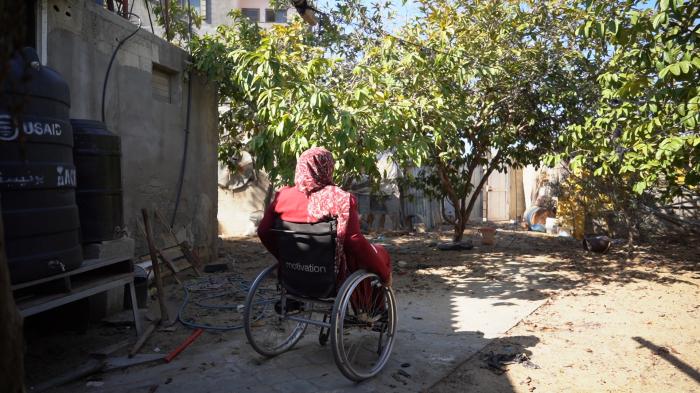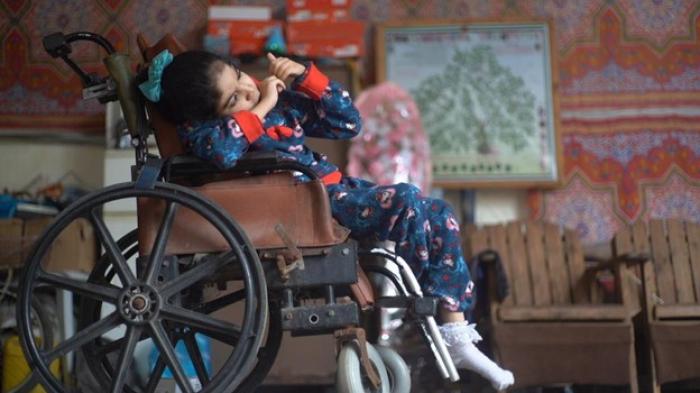Gaza: Power Cuts Harm People with Disabilities
Read a text description of this video
Fadwa Salha
Deema’s Mother
My daughter, Deema, has physical and intellectual disabilities.
Eman Abu Jarad
I have a visual disability. I’m considered legally blind.
Doa’a Qashlan
I couldn’t walk since birth. In sixth grade, I began using a wheelchair.
Heba Abu Jazar
I am a person with a hearing disability.
TEXT ON SCREEN:
Tens of thousands of people in Gaza have a disability.
Israel’s 13-year closure of Gaza has severely restricted the entry and exit of people and goods, limiting access to health care, assistive devices and electricity.
Chronic power outages disproportionately impact people with disabilities.
Fadwa Salha
Deema’s Mother
The biggest problem that Deema suffers from is lack of electricity, because she completely depends on it. Deema has had bronchitis since birth. She experiences blueness in her face, shortness of breath, and inability to move. I have to use a device that provides her with oxygen. It helps her a bit with breathing.
Doa’a Qashlan
Electricity comes on for about six hours a day. I feel that my whole life fully depends on whether there is electricity or not. My electric scooter is my legs. Without electricity, I have no legs. The battery of my electric scooter needs five to eight hours to charge until it is a full battery, and I can spend my day normally.
Eman Abu Jarad
Life in Gaza for people with disabilities is generally very difficult. Lack of electricity affects my life a lot. My vision is low and the electricity is insufficient, so I can’t study properly. Most of the time, I need up to three flashlights [when there is not electricity] to have enough light to study.
Heba Abu Jazar
As a person with a hearing disability, I personally have to be able to see in order to communicate. Lack of electricity is a big problem. We have to have electricity throughout the day to communicate easily [at night].
TEXT ON SCREEN:
Israeli attacks and import restrictions have reduced the capacity of Gaza’s sole power plant.
Israel also limits the amount of electricity it sells to Gaza.
The feud between the Palestinian Authority and Hamas contributes to the crisis.
Doa’a Qashlan
If there was electricity for 24 hours a day I would feel safer. At least, I would be able to leave [my home] when I want to.
Eman Abu Jarad
Electricity for 24 hours would be amazing, wow! Most importantly, it will help ease my studies. I hope to complete my masters and doctorate degrees and achieve a lot in my life.
Fadwa Salha
Deema’s Mother
I hope they will find a solution for the electricity problem. Every time the electricity cuts, I don’t know what to do for Deema. Deema’s health deteriorates.
TEXT ON SCREEN:
Israel should end its closure of Gaza and ensure the supply of electricity is enough to meet the needs of Gaza’s population, including people with disabilities.
Hamas authorities should improve accessibility inside Gaza for people with disabilities
Israel’s 13-year closure of the Gaza Strip along with neglect by Hamas authorities, significantly encumber the day-to-day life of tens of thousands of Palestinians with disabilities. Sweeping Israeli restrictions on the movement of people and goods, at times exacerbated by restrictive policies by Palestinian authorities, curb access to assistive devices, health care, and electricity essential to many people with disabilities. Chronic power outages in particular jeopardize the rights of many people with disabilities who need light to communicate using sign language, or need equipment powered by electricity to move, including elevators and electric mobility scooters.

